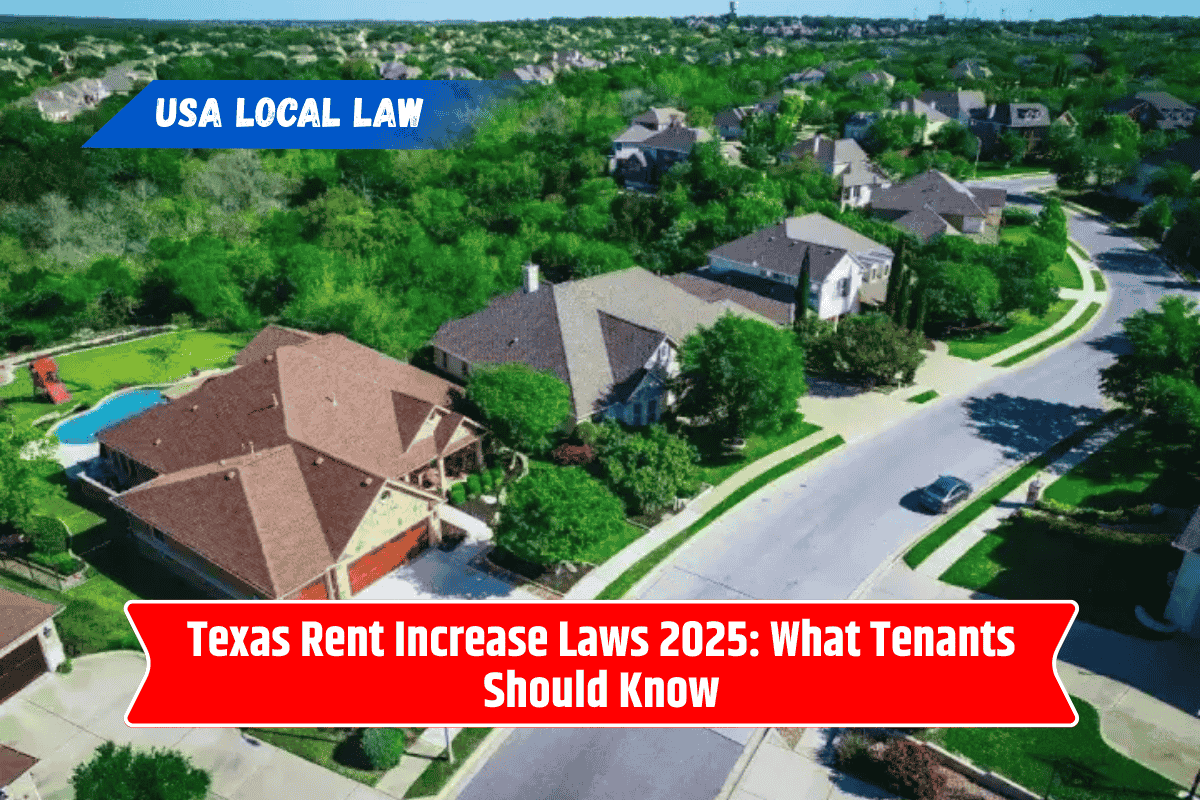In 2025, many renters in Texas are worried about rising housing costs. With the ongoing changes in the real estate market and inflation, it’s more important than ever for tenants to understand their rights when it comes to rent increases.
This article breaks down the Texas rent increase laws in a simple and clear way, so you know what landlords can and cannot do in 2025.
Are There Any Rent Control Laws in Texas?
No, Texas does not have any statewide rent control laws. This means landlords are generally allowed to increase rent by any amount they choose, as long as they follow the rules set out in the lease agreement and give proper notice. Unlike places like California or New York, Texas leaves most rental rules to the free market.
How Much Can Landlords Raise the Rent in 2025?
In Texas, there is no legal limit on how much a landlord can raise the rent. That means they can raise it by 5%, 10%, or even more. However, they cannot increase the rent in the middle of a lease. They must wait until the lease term ends.
If you’re renting month-to-month, they can raise the rent with proper written notice. The law does not set a specific limit on the percentage or amount of increase.
How Much Notice Does a Landlord Need to Give?
For month-to-month leases, landlords must give tenants at least 30 days’ written notice before increasing the rent.
For fixed-term leases (like a 12-month lease), the landlord cannot raise the rent until the lease ends—unless the lease specifically allows for increases during the term, which is rare.
Make sure to read your lease carefully. Some agreements may include a clause about potential rent adjustments.
Can Rent Be Raised During a Lease?
No. In most standard leases, the rent amount is locked in for the entire lease period. A landlord cannot suddenly decide to raise your rent in the middle of your lease unless you signed an agreement that allows it.
Once the lease ends, however, the landlord can offer a renewal with a higher rent or move to a month-to-month lease with the increased rate.
Are There Any Exceptions in 2025?
Although Texas does not allow rent control, there are a few limited exceptions for special housing, like government-subsidised or affordable housing programs. In such cases, rent increases may be capped or regulated by federal or local rules.
However, for the vast majority of private rental housing, these exceptions do not apply.
Can a Landlord Raise Rent to Force a Tenant Out?
Legally, a landlord can raise the rent as long as they are not doing it for a discriminatory or retaliatory reason. For example, they cannot raise your rent just because you filed a complaint or reported unsafe conditions.
If you believe a rent increase is being used to push you out or to punish you, you may have legal grounds to challenge it.
How Can Tenants Prepare for Rent Hikes?
In 2025, with rent prices rising in many Texas cities, tenants should:
Keep records of all communication with their landlord.
Compare nearby rental prices to see if the increase is reasonable.
Consider negotiating a new lease before the current one ends.
Contact local tenant support groups or legal aid if they believe the increase is unfair or unlawful.
Planning ahead and knowing your rights can help you avoid surprises and make better decisions about your housing.
What If I Can’t Afford the Rent Increase?
If you can’t afford the new rent, talk to your landlord before your lease ends. In some cases, they may be willing to work out a deal, especially if you’ve been a good tenant. If not, you may have to start looking for more affordable housing. Always avoid staying after your lease ends without permission, as this can lead to eviction.
Texas renters in 2025 need to stay informed as housing costs continue to shift. While the state doesn’t limit how much rent can go up, it does require landlords to follow notice rules and avoid discrimination. By understanding the laws and keeping communication clear with your landlord, you can better manage your housing situation.
If you’re ever unsure about your rights or feel a rent increase is unfair, it’s a good idea to talk to a legal professional or housing advisor. Staying informed is the first step to protecting yourself as a tenant.
